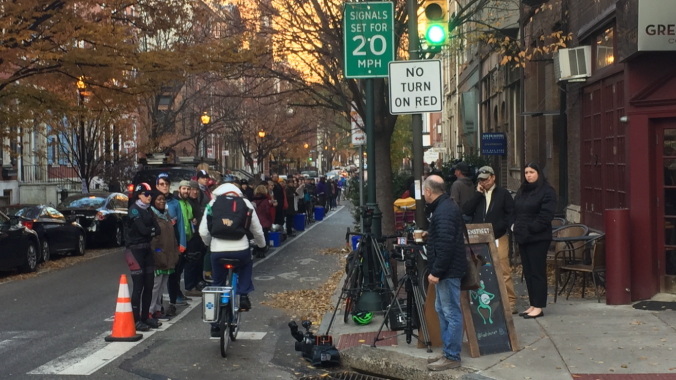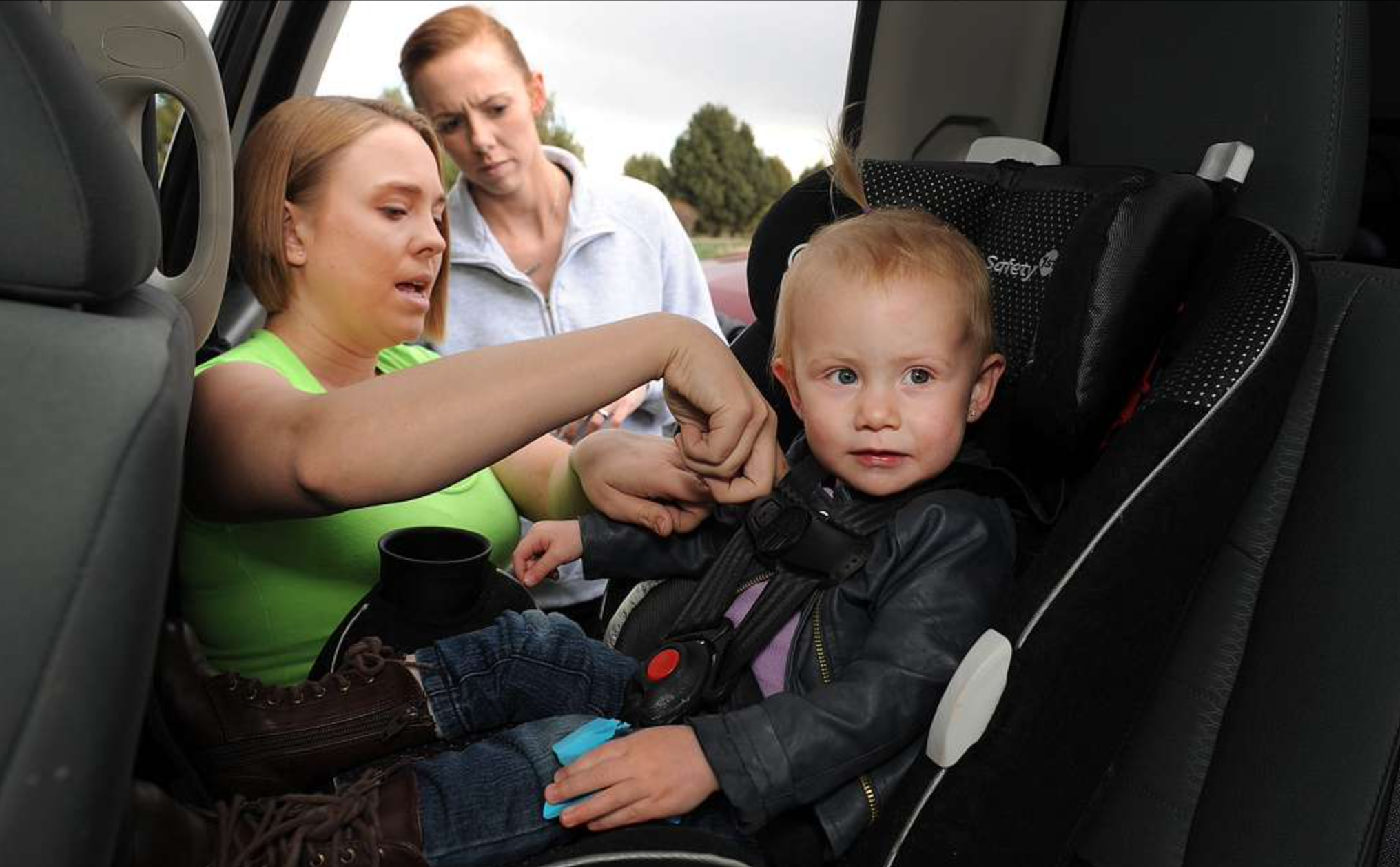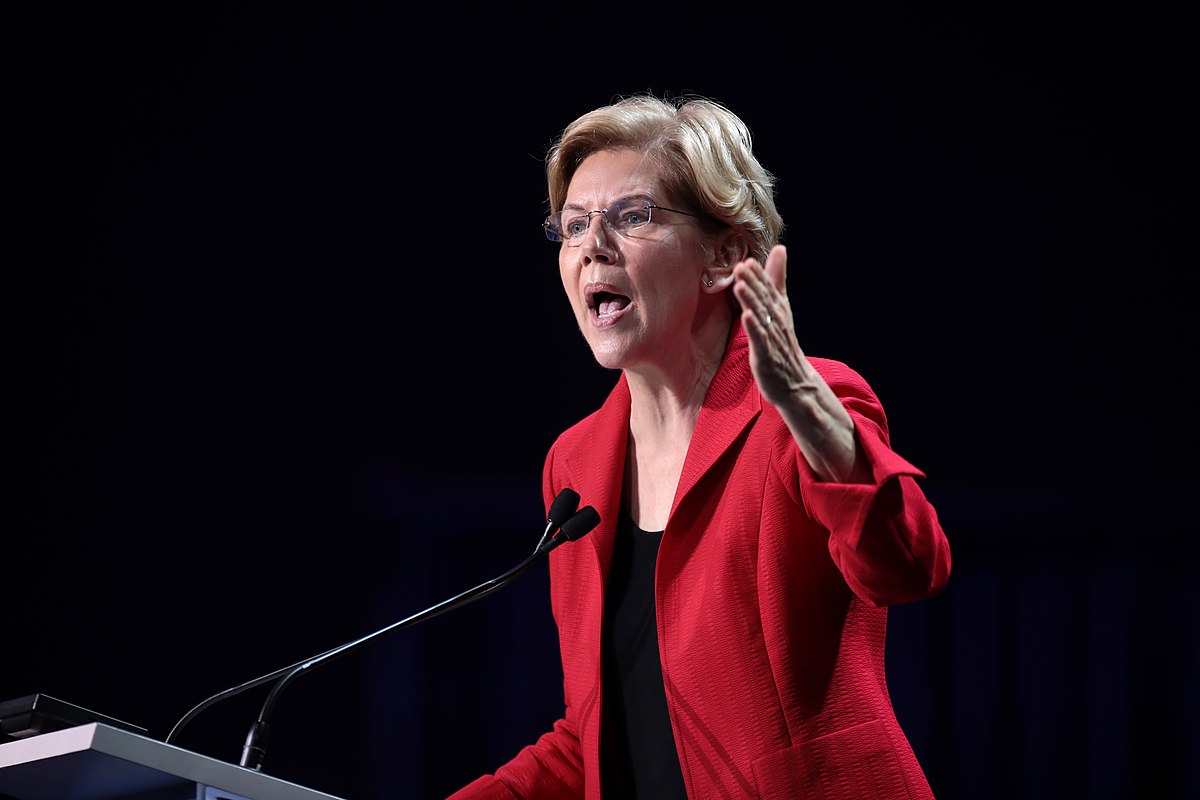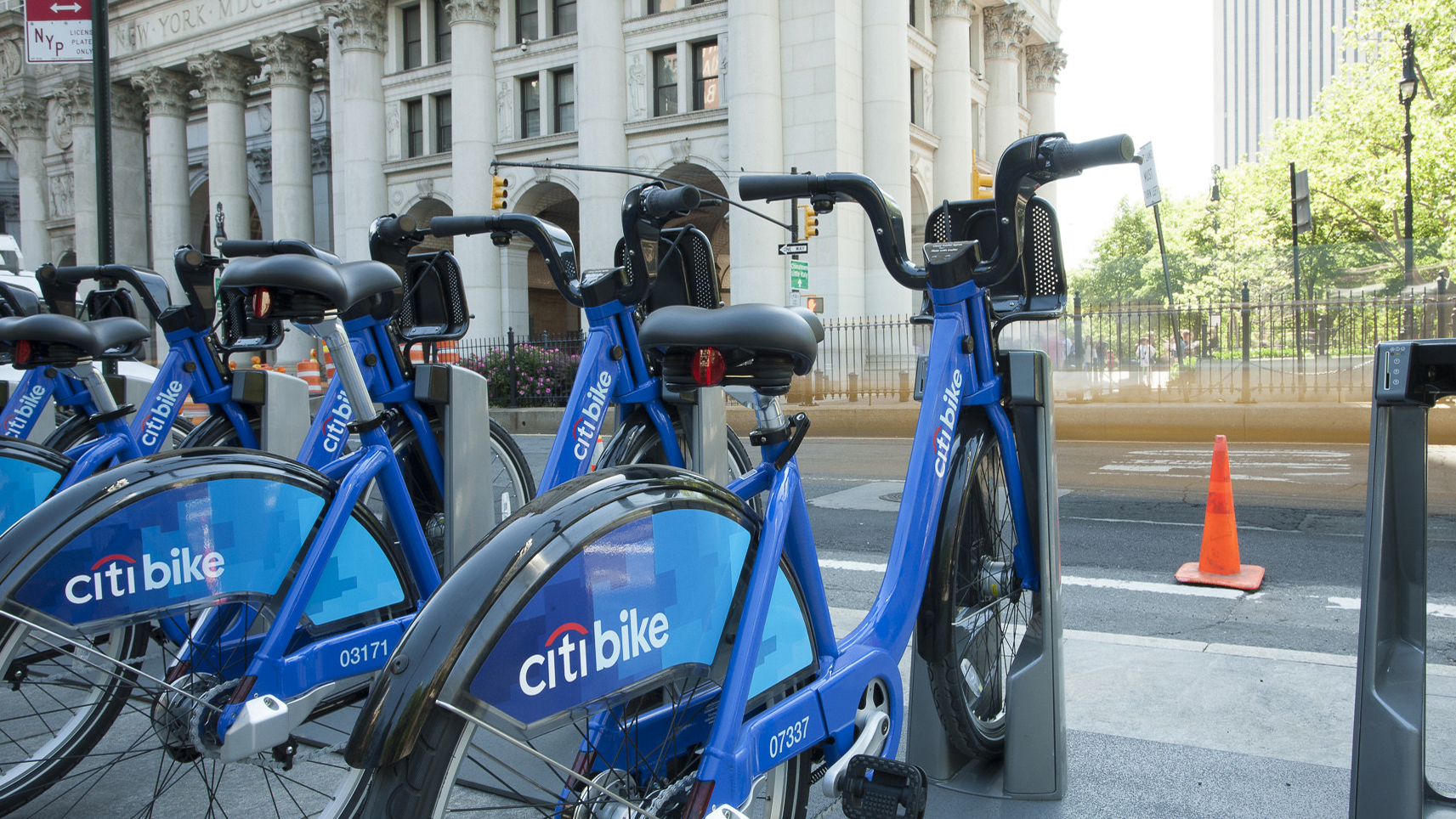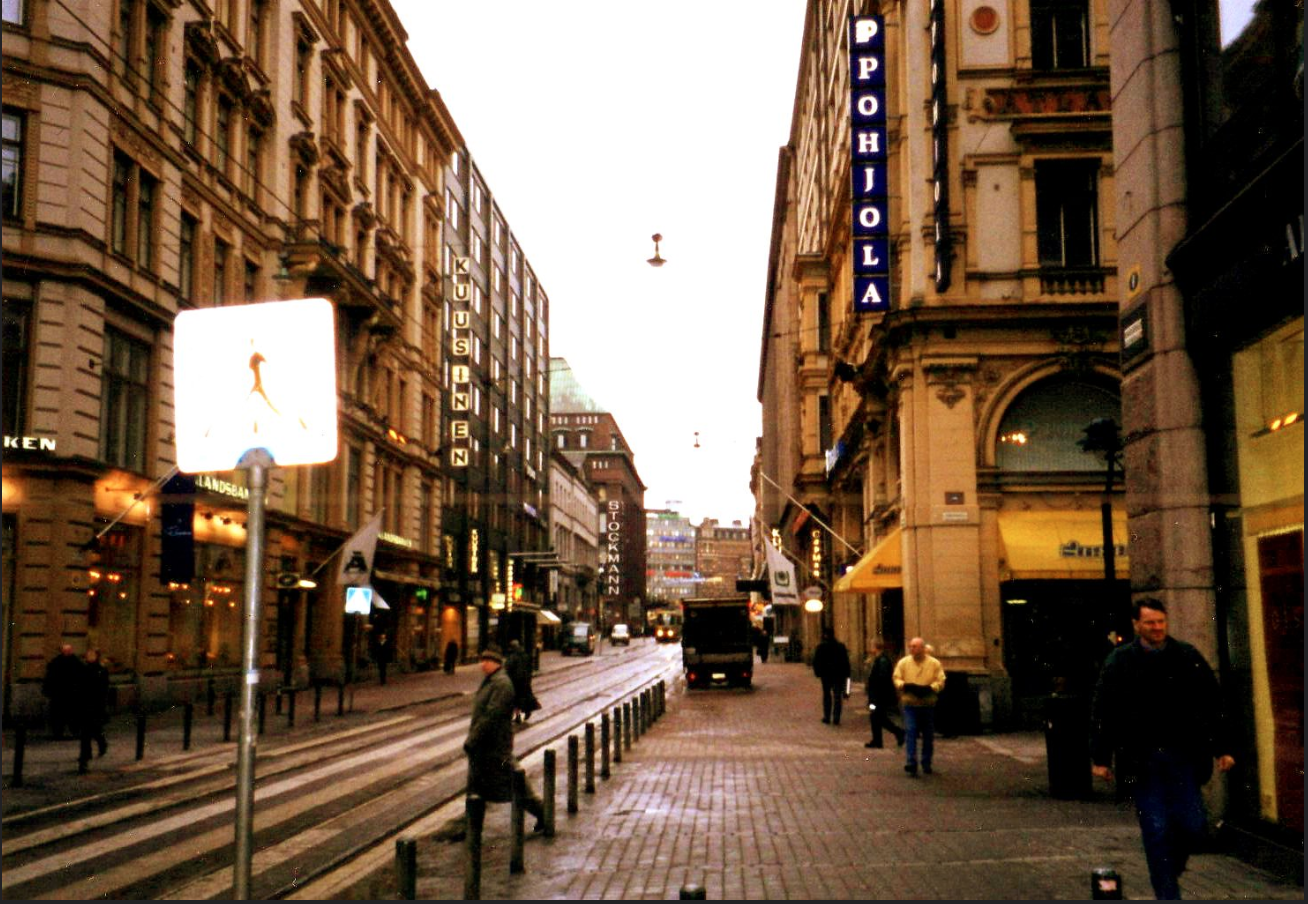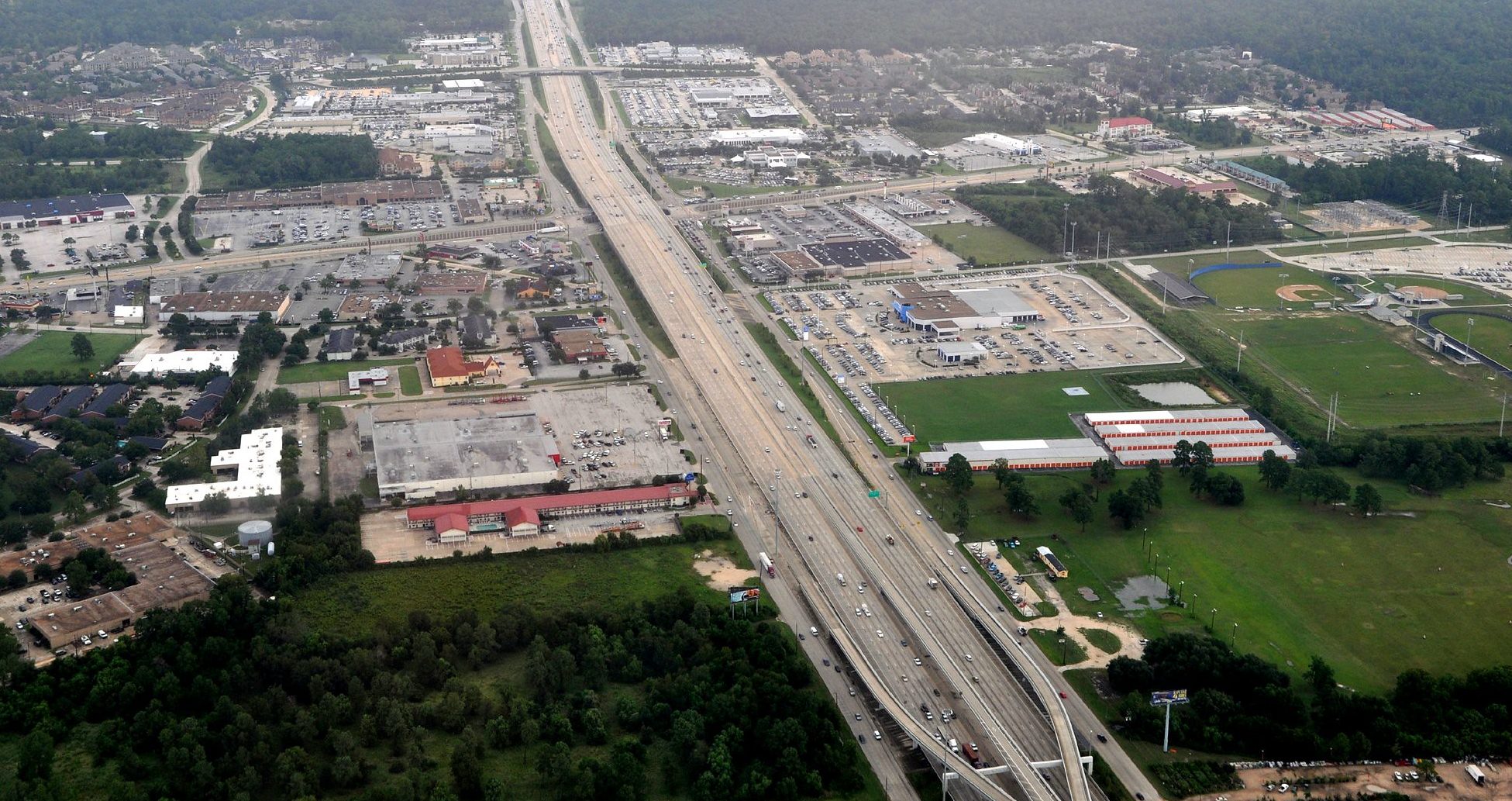The death of 24-year-old Emily Fredricks has touched off a flood of anger in Philadelphia.
On Tuesday morning, Fredricks was biking to work down Spruce Street, on a buffered but unprotected bike lane, when a garbage truck driver turned right and fatally struck her. Spruce Street is scheduled to receive vertical posts to add protection for cyclists. But local politicians have been dragging their feet.
Locals have had enough. About 75 demonstrators took to the streets yesterday demanding protected bike lanes on Spruce immediately. They formed a chain and used their bodies to shield cyclists traveling down the corridor.
Bike advocate Dena Driscoll wrote a fantastic op-ed in the Inquirer spelling out the problem:
The buffered bike lanes on Spruce and Pine Streets stretch from river to river and are two of the busiest bike lanes in Philadelphia. The lanes were a campaign promise made by former Mayor Michael Nutter in 2007, installed as a temporary pilot in 2009, and made permanent the following year. At the time, these lanes were seen as groundbreaking in the United States. Since then, cities around the U.S. have not only installed buffered lanes but also protected bike lanes, which are the pinnacle of safety because they create a plastic physical barrier between cyclists and cars.
When Mayor Kenney ran for office, he promised voters that he would install 30 miles of protected bike lanes in Philadelphia. (For reference, 30 miles is about 1 percent of all Philadelphia streets.) Currently he has completed two small segments.
Part of Philadelphia's problem is that it allows City Council members to exercise de facto veto power over bike improvements, she writes:
Unlike many of our neighborhood streets, Spruce and Pine have earmarked grant funding to improve them for safer mobility — including funds for re-striping and installation of flexi-posts to separate the bike lanes from car traffic.
However, before that money can be spent, we need our local Council people on board. Mark Squilla and Kenyatta Johnson have final say on bike lanes in their districts — Spruce and Pine run through both — but they often cede that power not to the city Office of Transportation and Infrastructure Systems’ team of expert planners and engineers, but to a select group of citizens and powerful residential associations who, at many contentious meetings about protected bike lanes, have demanded the convenience of using the bike lane as a de facto loading zone for their cars. This is something most Philadelphians do not get the privilege of doing on the streets where their homes are located. We cannot allow our Council people to “pass the buck” when they demanded as part of the Complete Streets bill to have final say for street design.
Meanwhile, Patrick Miner at Rebuilding the Rust Belt participated in yesterday's people-protected bike lane and explains how it all came together. The demonstration, he says, "not only highlighted the outrage of a senseless and preventable death, it showed that people care deeply, and it educated the wider public on a practical solution, and thus hacked the political problem of making Philadelphia more humane."
